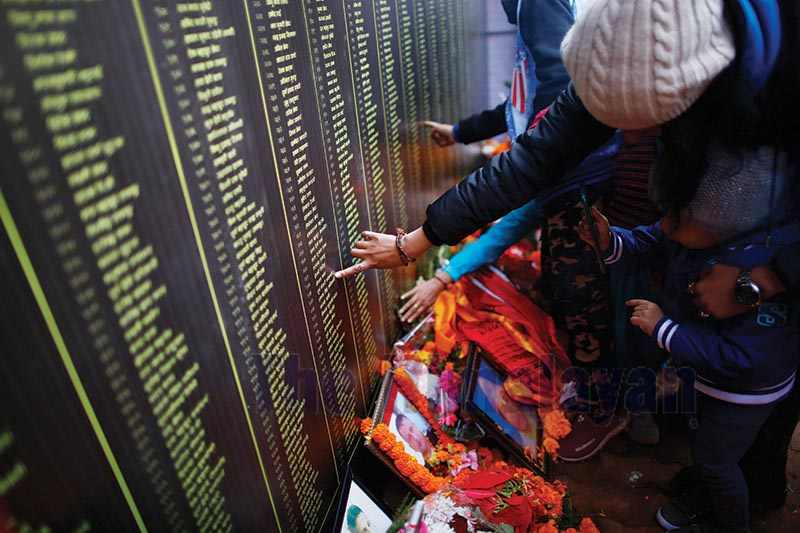Mass condolence in memory of deceased cornea donors
Kathmandu, December 28
Tilganga Institute of Ophthalmology today organised a mass condolence ceremony in memory of deceased cornea donors.
The event provides an opportunity to recognise eye donors and their families and also an opportunity to express gratitude to them.
Speaking at the event, Executive Director of Nepal Electricity Authority Kulman Ghising pledged to donate his cornea posthumously and added that electric lights alone could not illuminate one’s life, one needed to have his/her eyesight intact.
“Cornea donation programme began with one person donating his cornea some 25 years ago, but now more than 1,000 persons have already donated cornea. It is the effort of the Eye Bank that has made it possible today. We have continuously been telling that eye donation doesn’t mean donating the entire eye ball. It is only cornea that we take out. There are no religious, cultural issues in it,” said Dr Sanduk Ruit, executive director of the institution.
“The event was organised to encourage people to donate cornea, to express gratitude to the family of deceased cornea donors, to share experiences of those who received corneas and also to pray for the departed souls,” said Dr Rita Gurung, executive chief officer of the institution. Over 75,000 persons have pledged to donate their cornea to Nepal Eye Bank at Tilganga Institute of Ophthalmology posthumously, while around 15,000 persons have regained their sight after cornea transplant so far, according to the institution.
A cornea transplant is a surgical procedure to replace part of one’s cornea with corneal tissue from a donor. A cornea transplant can restore vision and reduce pain.






